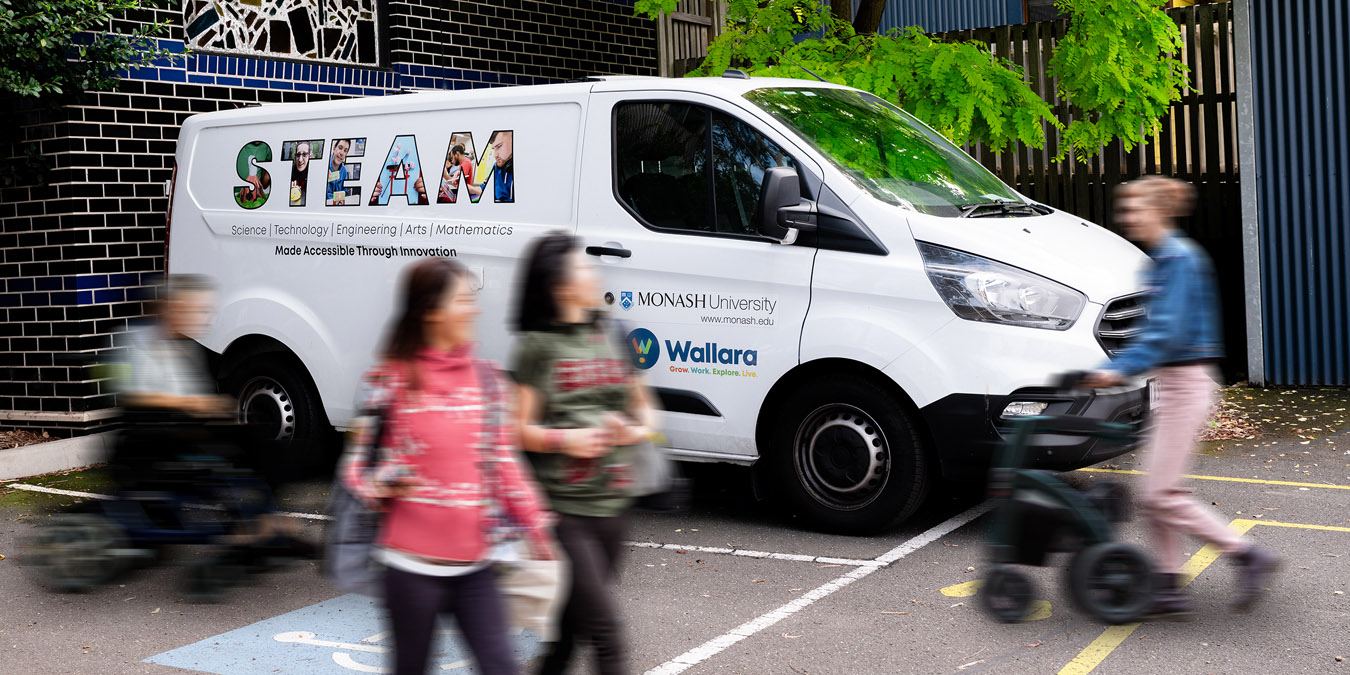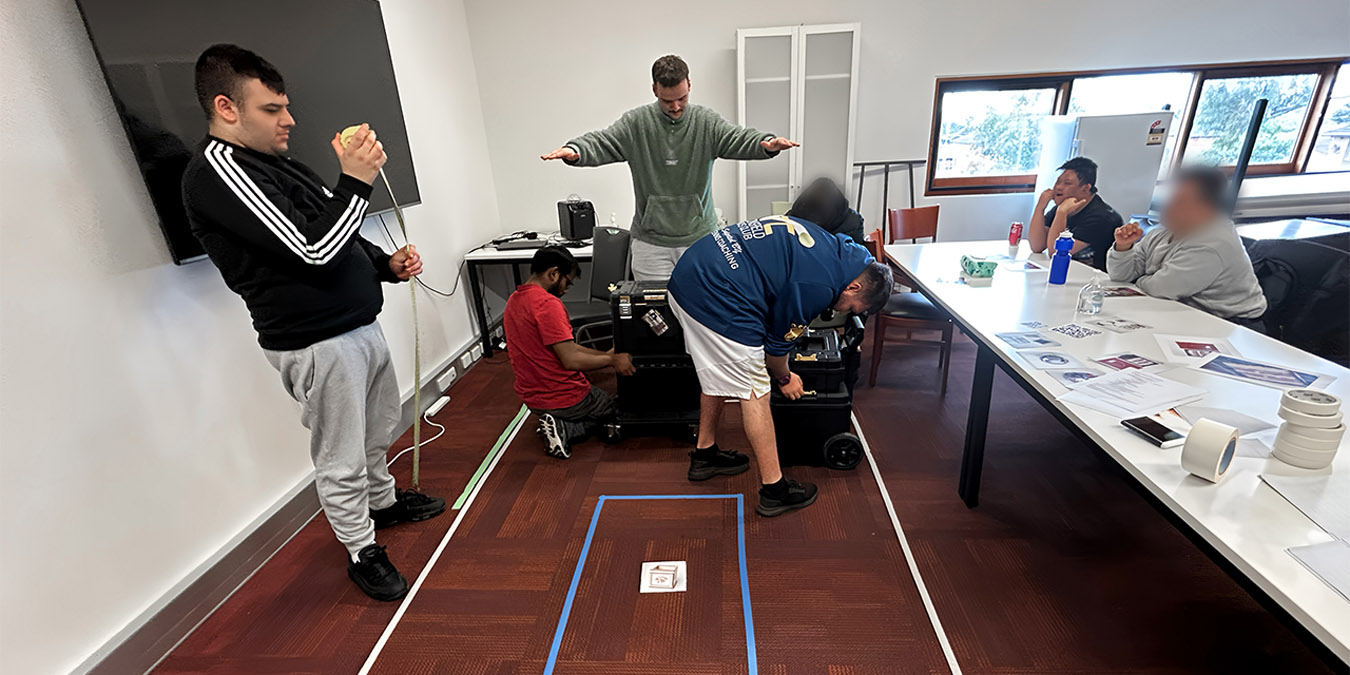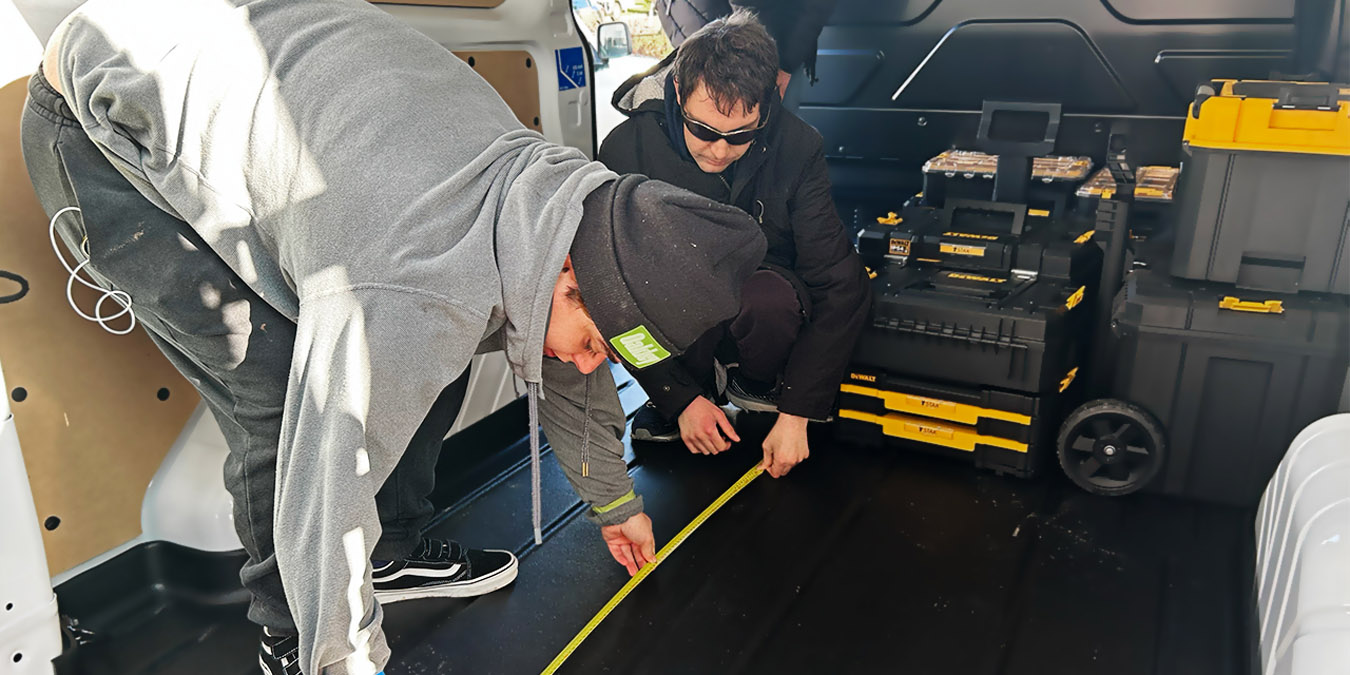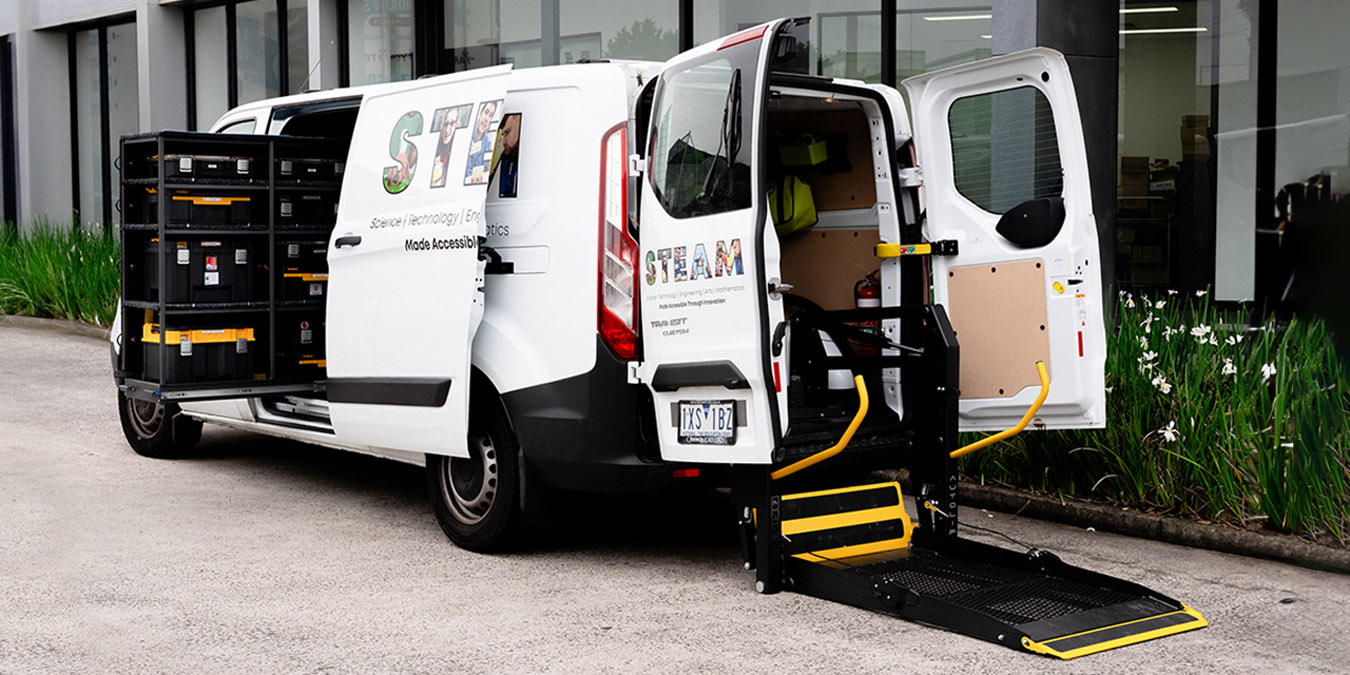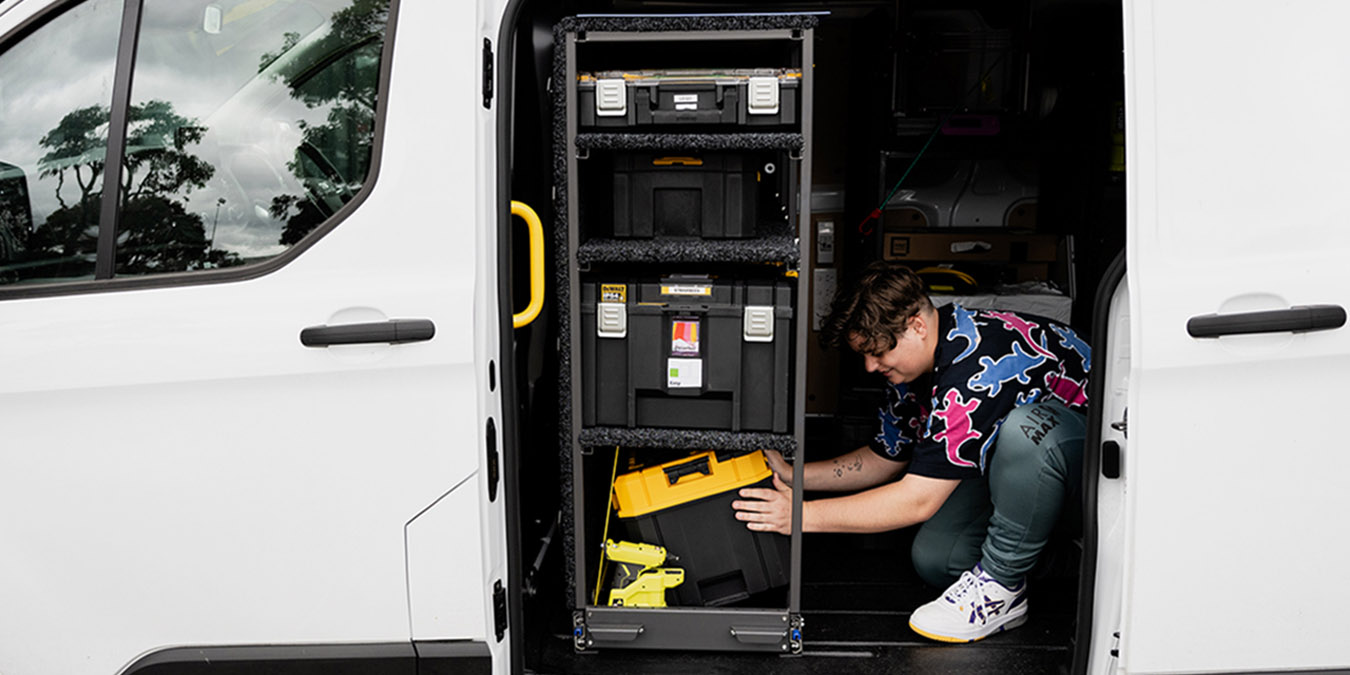A three-phase approach to co-designing the Makervan was employed where people with intellectual disabilities, support coaches and Wallara’s leadership team participated in (1) preliminary interviews, (2) bodystorming and (3) reflective interviews. Through an iterative and collaborative process, an inclusive strategy for co-designing the Makervan with and for the community it sought to serve was developed and executed.
The project engaged 32 stakeholders, including people with intellectual disabilities (clients), support workers (coaches) and Wallara’s leadership team. This engagement spanned over 100 hours, including ethnographic observations, preliminary interviews, bodystorming workshops, and reflective interviews. This process yielded insights that identified the need for a mobile makerspace, to adapt to the diverse capabilities of local learning environments while promoting inclusive participation and exposure to STEAM materials among clients.
We present the outcome of a co-designed mobile makervan, equipped with standard makerspace equipment such as electronics, robotics, programming, construction, modelling and eTextile materials. These resources were made safe and accessible through co-designed resource shelving and storage containers, and are used daily in the Makervan across six of Wallara’s sites.
The Makervan provides a unique opportunity for people with intellectual disabilities to engage in making technologies themselves, an experience often limited by the physical, cognitive and social inaccessibilities of traditional makerspaces.

